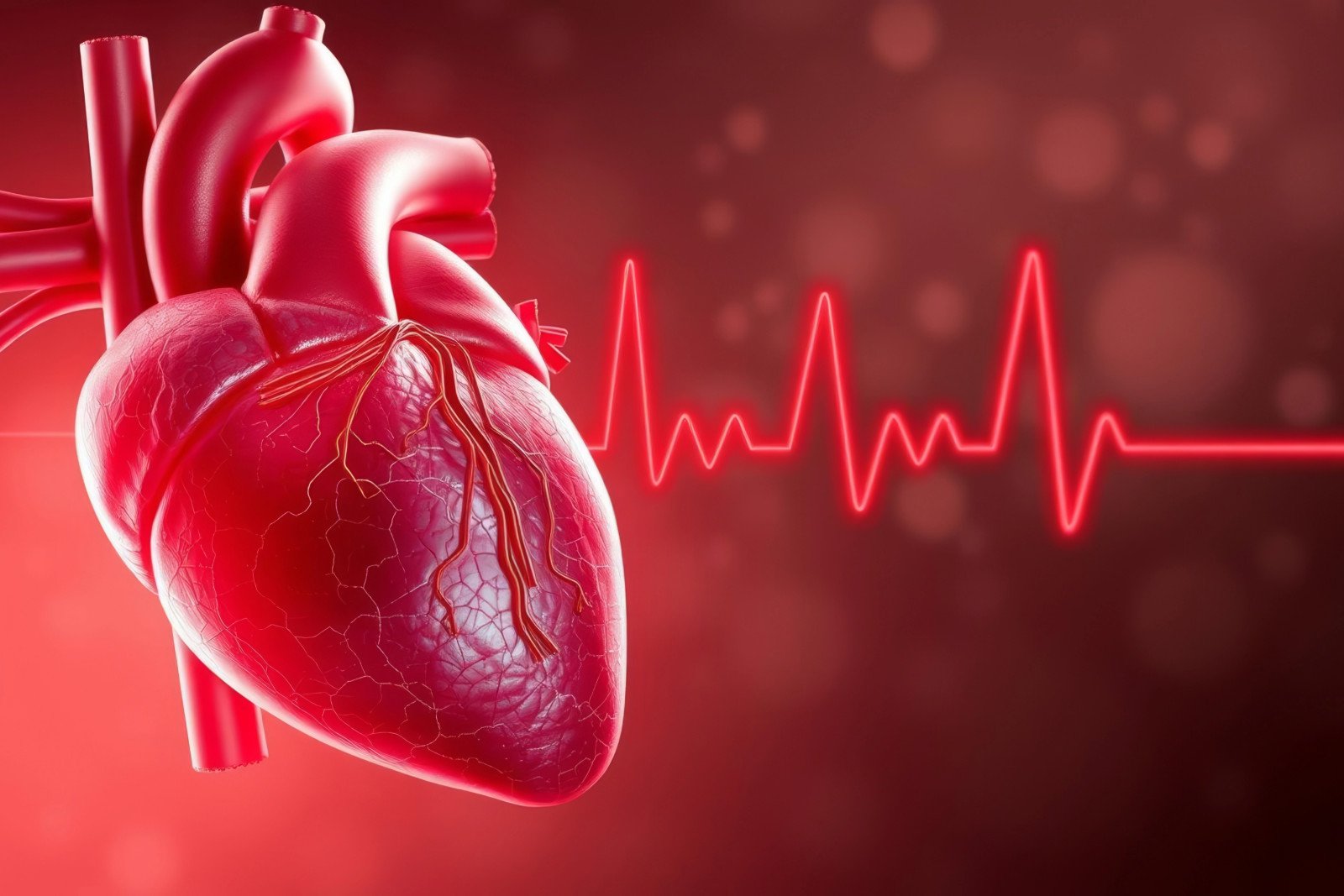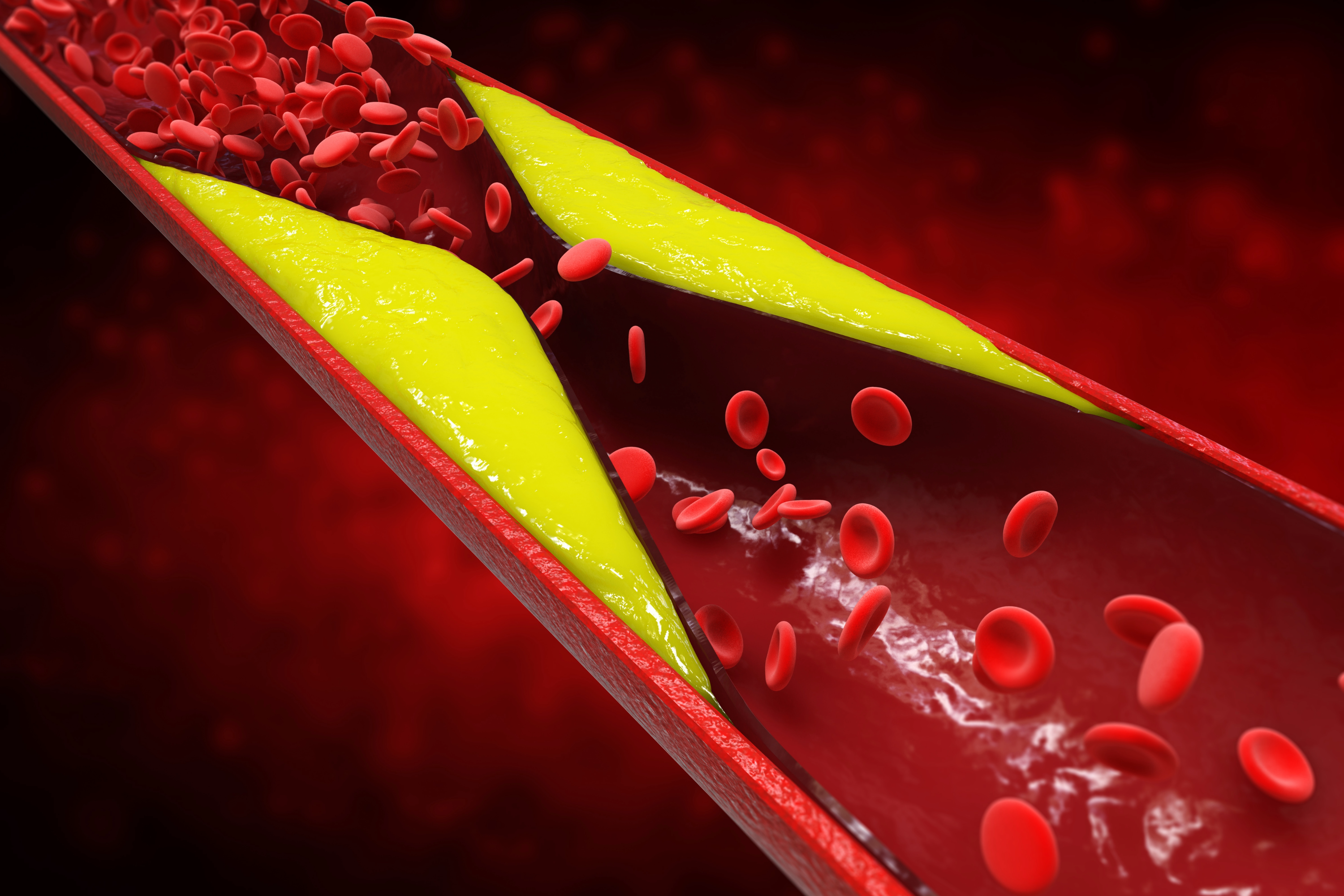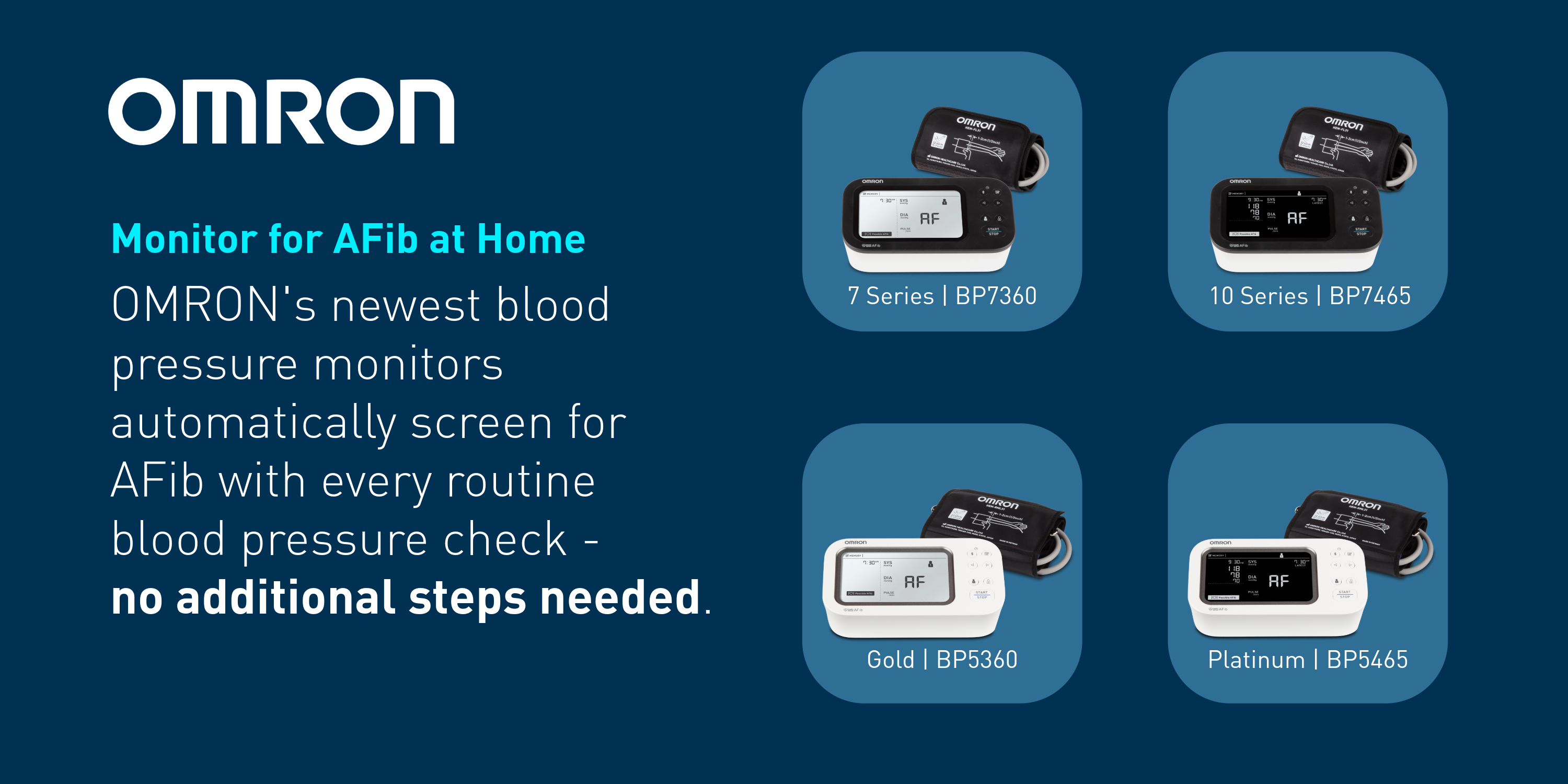Cardiovascular diseases
Hypertension and AFib: What’s the Correlation?


Key Takeaways
One in four adults over 40 will develop AFib in their lifetime.
High blood pressure, or hypertension, is a leading cause of AFib in adults.
Hypertension develops when blood flows through the arteries with too much force, putting extra strain on the heart and its blood vessels. When plaque develops to repair the strain on blood vessels, that narrows how much blood can pass through, increasing blood pressure.
The strain and impact chronic high blood pressure places on the cardiovascular system can impact the electrical rhythm in the heart, which can trigger and sustain AFib.
The risk of AFib increases with the severity of hypertension, in addition to other chronic conditions and advanced age.
In 2025, OMRON released four new home blood pressure monitors with Advanced AFib Detection Technology that screen for both in one device. Given the fleeting nature of AFib’s symptoms, this is a big step forward in AFib innovation and detection.
Atrial Fibrillation (AFib) is a growing health crisis in the United States. One in four adults over 40 will develop AFib in their lifetime1. And those are diagnosed cases; there could be thousands more who remain undiagnosed.
For over 50 years, OMRON has been a trusted leader in heart health innovation, awareness, and education. As part of our “Going for Zero” mission to eliminate heart attack and stroke, it’s vital to increase awareness of AFib among at-risk populations and empower more people to take charge of their heart health.
Why? AFib significantly increases the risk of heart attack, heart failure and stroke2. In fact, 15 percent of all strokes in the U.S. are attributed to AFib3. One in six cases of AFib is caused by hypertension4.
Hypertension is a leading cause of AFib in adults5. In fact, it's not uncommon for both high blood pressure and AFib to be present in the same person6. In this blog, we’re going to talk about the connection between hypertension and AFib and how you can monitor both to stay on top of your heart health.
What is Hypertension?
Hypertension is also known as high blood pressure. It’s a common condition that affects nearly half of adults in the U.S.7. Hypertension develops when blood flows through the arteries with too much force, putting extra strain on the heart and its blood vessels8.
When blood pressure is high for too long, it can damage the walls of the blood vessels, causing them to develop tiny tears. To fix these tiny tears, the body sends special cells that stick to them. Over time, plaque can develop because of cholesterol and fats that build up at these damaged spots. When plaque develops, blood vessels narrow and can block the flow of blood, further increasing blood pressure9.

How does Hypertension Impact Your Heart?
Hypertension causes a “fight or flight” activation in the nervous system, which can lead to systemic inflammation, oxidative stress and kidney damage10.
Untreated hypertension can also make structural changes to the heart muscle, including11:
Left ventricular hypertrophy
Definition: When the left ventricle has to work harder to overcome high pressure in the arteries
Diastolic dysfunction
Definition: Diastole is the phase of the heartbeat when the heart muscle relaxes so the heart can fill back up with blood. Diastolic dysfunction is when the heart does not relax normally due to high blood pressure.
Atrial stretch and fibrosis
Definition: When the heart is stressed and working harder than normal, the upper chambers (atria) can begin to stretch and enlarge. Hypertension can compound this problem by causing increased inflammation, oxidative stress, and sympathetic nervous system activation.
The Connection Between Hypertension and AFib
In addition to structurally changing the heart, the strain and impact chronic high blood pressure places on the cardiovascular system can impact the electrical rhythm in the heart, which can trigger and sustain Afib12. Managing cardiovascular problems like hypertension can become more difficult if AFib develops13.
Studies show that people with hypertension are up to two-times as likely to develop AFib compared to non-hypertensive adults14. The risk of AFib increases with the severity of hypertension. Other AFib risk factors include: obesity, sleep apnea, and diabetes, and older adults (aged 60 plus) with hypertension have an even greater increased risk of developing AFib15.
Monitoring Blood Pressure and AFib at Home with OMRON
Home screening for blood pressure and AFib are important to manage your heart health long-term. AFib can strike without warning and symptoms can slip under the radar during routine checkups, which is why ongoing monitoring at home and in the doctor’s office is vital.
OMRON is the #1 doctor and pharmacist recommended brand of at-home blood pressure monitors for a reason16,17. Our monitors are clinically validated for accuracy and designed for ease of use. In 2025, OMRON released four new home blood pressure monitors with Advanced AFib Screening Technology. These monitors automatically screen for AFib during every routine blood pressure reading - no additional steps needed. Each monitor syncs with the OMRON connect app, which can store your readings to share with your doctor, who will help determine your next course of action.
 Learn more about AFib and OMRON’s newest blood pressure monitors with Advanced AFib Screening Technology.
Learn more about AFib and OMRON’s newest blood pressure monitors with Advanced AFib Screening Technology.
References
1.Berg. (2025). What doctors wish patients knew about atrial fibrillation. American Medical Association. https://www.ama-assn.org/delivering-care/population-care/what-doctors-wish-patients-knew-about-atrial-fibrillation
2,3,5,6.(Accessed August 2025). High Blood Pressure, Atrial Fibrillation and Your Risk of Stroke. American Heart Association. https://www.heart.org/en/health-topics/atrial-fibrillation/why-atrial-fibrillation-af-or-afib-matters/high-blood-pressure-afib-and-your-risk-of-stroke
4,10,11.(Accessed August 2025). Atrial Fibrillation and High Blood Pressure. Fix AFib. https://www.fixafib.com/blog/afib-causes/atrial-fibrillation-and-high-blood-pressure/
7,9.(Accessed August 2025). What is High Blood Pressure? American Heart Association. https://www.heart.org/en/health-topics/high-blood-pressure/the-facts-about-high-blood-pressure
8,12,13,14,15.(Accessed August 2025). Hypertension and Atrial Fibrillation. Atrial Fibrillation Centers of America. https://www.afibamerica.com/hypertension-and-atrial-fibrillation/
16.Frost & Sullivan Survey, Blood pressure clinician perception tracker surveys. July 17, 2024.
17.U.S. News Staff. (2024). Best OTC Medicine & Health Products. U.S. News & World Report. https://health.usnews.com/otc/rankings/blood-pressure-monitors